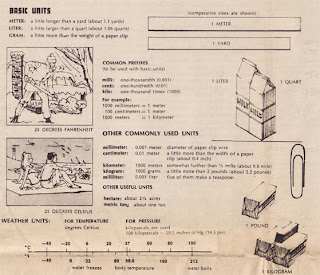Are you the sort of person who makes their own laundry
detergent?
Do you wash and re-use Ziplock bags?
Are you a secret foil hoarder?
Do you wait for illnesses to “run their course” rather than
succumb to “conventional” medicines?
Do you recoil at the thought of fake Christmas trees, yet
find yourself in an ethical dilemma when thinking about the tremendous waste
involved in buying a “fresh” one each year, only for it to end up in a
landfill?
Then you will LOVE this handy alternative!
A cabbage Christmas Tree has all the wonder of the real
thing (including artful decorations) without the fuss of pine needles, the
annoyance of sticky resin, the danger of flammability, and the emotional
scarring that comes with following the herd and handing over real money to a
seasonally-employed fellow hawking farm-grown trees out of a parking lot.
Who needs the smell of pine when you can enjoy the smell of
raw cabbage! And just think of the savings you will encounter by being able to
eat the entire thing afterwards (decorations and all!)
And who has the space for a tree? They only force you to
rearrange your furniture and can usually be seen form the street, inviting
hooligans and miscreants to rob you blind. This all-natural tree can be placed
on your table and does not need watering. All you need to do to keep it fresh
is remove the shriveled decorations every now and then, shave the tree, and
replace with new decorations.
If you’re worried that there won’t be room for presents
under your cabbage Christmas Tree, never fear: Christmas isn’t about the wanton
consumerist greed and commercial religiosity that has plagued the holiday in
recent years. This tree delivers the REAL message of Christmas: no gifts
necessary.
You wouldn’t want your children to grow up with Santa Claus
as a role model, would you? He’s clearly overweight and relies upon the slave
labor of elves and reindeer to do his work. This way, you can dispense with all
of that nonsense and give your children the gift of disillusionment instead —
it’ll serve them far better in the long run.
Finally, if you’re unsure about desecrating a religious
celebration by bucking the system, reassure yourself that the baby Jesus would
encourage you to keep humble and use vegetables to represent his nativity;
after all, that’s probably what the Holy Family would have found in their
stable — none of this chocolate and fruitcake business.
Go ahead and make yours today.
Garnishing: A Feast
For Your Eyes, HP Books, 1987
Also from this book: Carrot Fishing Net, Randolph The Red-Nosed Rainmoose












